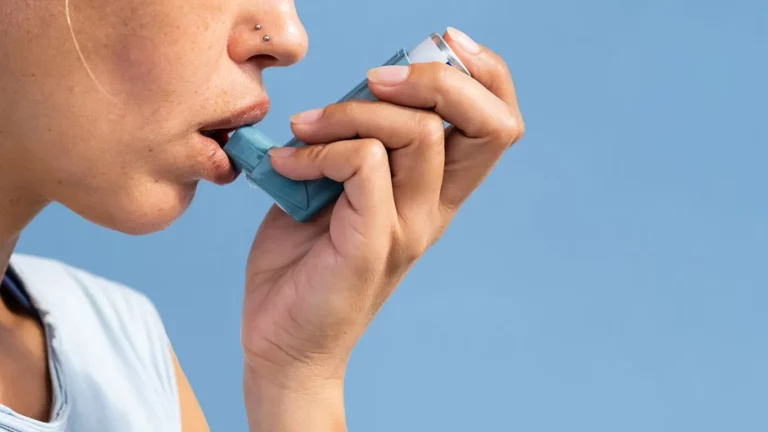Best Way to Eat for GERD: Essential Tips for Relief and Long-Term Management
As someone who has spent years working with people managing GERD (Gastroesophageal Reflux Disease), I’ve learned that the best way to eat for GERD isn’t a one-size-fits-all solution. It’s not about simply following a list of “safe” and “unsafe” foods – it’s more about understanding how different foods affect your body and creating a strategy that works for you. In this guide, I’ll walk you through the most effective ways to eat for GERD, offering practical tips and advice based on my professional experience and research. Trust me, making the right food choices can make a world of difference in managing your symptoms.
What is GERD and How Does It Affect Your Digestive Health?
Before we dive into the best way to eat for GERD, it’s important to have a clear understanding of what GERD is and how it impacts your digestive system. GERD, or gastroesophageal reflux disease, occurs when stomach acid or bile irritates the food pipe lining. This happens because the lower esophageal sphincter (LES), a muscle that acts as a barrier between the stomach and the esophagus, becomes weak or relaxes inappropriately. When this happens, stomach acids rise into the esophagus, causing discomfort, heartburn, and potentially leading to more severe complications over time.
If you’re reading this, chances are you’ve experienced the tell-tale burning sensation in your chest, or perhaps you’ve been dealing with chronic acid reflux. I know how uncomfortable and disruptive GERD can be, especially when it affects your eating habits and lifestyle. But the good news is that with the right dietary approach, GERD symptoms can be controlled, and in many cases, significantly reduced.
Understanding GERD Triggers: How Foods Play a Role
The first step in figuring out the best way to eat for GERD is understanding what triggers your symptoms. Every person is different, and while some foods may set off heartburn for one person, they may be perfectly fine for someone else. That’s why it’s crucial to take note of how your body reacts to certain foods and make adjustments accordingly.
Common GERD Food Triggers
- Citrus fruits: While packed with vitamin C, they’re also highly acidic, which can irritate the esophagus.
- Spicy foods: Chili peppers, hot sauces, and other spicy ingredients can cause the LES to relax, allowing acid to flow back up.
- Fatty foods: Fried and greasy foods, as well as full-fat dairy, can slow down digestion, increasing the likelihood of reflux.
- Tomato-based foods: Whether it’s pasta sauce or ketchup, tomatoes can exacerbate GERD symptoms due to their acidity.
- Chocolate: Yes, I know – this one is tough for many! But chocolate contains caffeine and other compounds that can trigger reflux.
- Caffeinated beverages: Coffee, tea, and soda are known to relax the LES and stimulate acid production.
Food Sensitivities Vary
One of the things I’ve observed through my years of working with GERD patients is that food sensitivities can vary widely. While some people experience heartburn after a simple cup of coffee, others may not be affected at all. It’s essential to personalize your diet based on your specific triggers.
The Best Way to Eat for GERD: Gentle on the Stomach
So, what is the best way to eat for GERD? Let’s take a look at a more GERD-friendly approach to eating that can help alleviate symptoms and give your body the chance to heal. Here are some strategies that I often recommend to my patients:
1. Opt for Smaller, More Frequent Meals
Large meals are a major culprit when it comes to GERD flare-ups. When you eat a big meal, your stomach has to work harder to digest all the food, and this puts pressure on the LES. This increases the risk of acid reflux. Instead of eating three big meals a day, aim for smaller, more frequent meals to keep things moving smoothly. This helps avoid overloading your digestive system and reduces the chances of reflux.
My personal tip: Try to eat about 5 or 6 smaller meals spread out throughout the day, and always avoid eating late at night. Eating too close to bedtime can make symptoms worse because lying down right after eating makes it easier for acid to back up into your esophagus.
2. Choose Alkaline and Low-Acid Foods
To minimize the discomfort of GERD, aim to incorporate more alkaline, low-acid foods into your diet. These foods help neutralize stomach acid and can be easier on your digestive system. Examples include:
- Leafy greens: Spinach, kale, and lettuce are easy on the stomach and rich in essential nutrients.
- Oatmeal: This is a great breakfast option that soothes the stomach and absorbs acid.
- Whole grains: Brown rice, quinoa, and whole wheat are excellent choices for keeping things balanced.
- Lean proteins: Chicken, turkey, and fish are generally well-tolerated and don’t trigger acid reflux.

3. Include Non-Citrus Fruits
Fruits are a vital part of any balanced diet, but some fruits can be too acidic for people with GERD. However, there are plenty of non-citrus options that are gentle on the stomach, such as:
- Bananas: Known for their soothing properties, bananas can help coat the stomach and reduce acidity.
- Melons: Watermelon, cantaloupe, and honeydew are low in acid and hydrating.
- Apples and pears: These fruits are mild and less likely to cause reflux.
Making Adjustments for Your Personal GERD Journey
What works for one person may not necessarily work for another when it comes to managing GERD, and that’s something I always tell my patients. It’s about trial and error, tuning into your body’s needs, and making adjustments as needed. Some people might find that avoiding tomatoes is enough to keep their symptoms at bay, while others might need to avoid multiple trigger foods at once.
As you start to make changes to your diet, pay close attention to how your body reacts. Keep a food diary if you can – this can help you track what you eat and how it affects your GERD. Over time, you’ll start to notice patterns that will guide your food choices and lead you to a more balanced, symptom-free lifestyle.

4. Drink Plenty of Water
Water is one of the most underrated tools in managing GERD. It helps flush excess stomach acid and keeps your digestive system running smoothly. Aim to drink water throughout the day, but avoid drinking large amounts in one sitting, as this can put extra pressure on your stomach.
My tip: Try sipping water in between meals instead of gulping it down with food. This can help reduce bloating and acid reflux.
In the next part of our guide, we’ll dive deeper into the role of lifestyle changes, medications, and additional tips for reducing GERD symptoms. Stay tuned!
GERD and Lifestyle Changes: A Holistic Approach
Managing GERD isn’t just about what you eat; it’s also about how you live. Trust me, lifestyle changes play a significant role in controlling your symptoms. For years, I’ve worked with patients who’ve noticed a remarkable improvement in their GERD symptoms after making just a few tweaks to their daily routine. These changes don’t have to be drastic, but small steps can make a big difference.
1. Elevate Your Head While Sleeping
One of the most common GERD triggers happens while you’re lying down. When you sleep flat, stomach acid can easily travel back into the esophagus. That’s why I always recommend elevating the head of your bed by about 6 to 8 inches. It’s a simple but effective way to help gravity do its job and prevent acid reflux while you sleep.
It may sound a little strange at first, but trust me, once you get used to it, it makes a huge difference. I’ve had many patients tell me that they started sleeping much better after making this small change. If raising the head of your bed isn’t an option, you can also use a wedge pillow to keep your upper body elevated while you sleep.
2. Avoid Lying Down Immediately After Eating
This one’s a biggie. I know it’s tempting to relax after a nice meal, but lying down right after eating can increase the likelihood of reflux. I always advise my patients to wait at least 2 to 3 hours before lying down after a meal. This gives your body enough time to digest the food properly and reduces the risk of stomach acid pushing back up into the esophagus.
Think of it like this: after you eat, your stomach is working hard to break down food. If you lie down right away, gravity isn’t on your side. But if you stay upright, your body has a better chance of keeping that stomach acid where it belongs. So, avoid the urge to lounge on the couch or go to bed right after dinner. Instead, take a walk or stay upright for a bit to allow your body to digest the food.

3. Maintain a Healthy Weight
Carrying extra weight, especially around your abdomen, can put pressure on your stomach and increase the risk of acid reflux. I’ve seen firsthand how losing even a small amount of weight can make a significant difference in reducing GERD symptoms. When you’re overweight, the added pressure on your stomach can cause the LES to weaken, allowing stomach acid to travel into the esophagus.
Even if you don’t have a lot of weight to lose, maintaining a healthy weight through diet and regular exercise can help ease GERD symptoms. I always encourage my patients to aim for a balanced, sustainable approach to weight management – quick fixes or fad diets aren’t the answer. Find a routine that works for you and stick to it!
My advice: Even simple activities like walking or yoga can help relieve pressure on your stomach and aid digestion. Plus, these activities can improve overall health and reduce stress, which brings me to my next point…
4. Manage Your Stress Levels
Did you know that stress can actually make GERD worse? It’s true! Chronic stress can increase stomach acid production and weaken the LES, making it easier for acid to flow back into your esophagus. Over the years, I’ve seen how stress management plays a huge role in controlling GERD symptoms. And no, you don’t have to meditate for hours each day to reap the benefits!
Simple things like deep breathing exercises, mindfulness, and even taking a few minutes to relax during the day can make a big difference. When you’re stressed, your body is in “fight or flight” mode, which can disrupt digestion and make GERD worse. By finding ways to unwind and manage stress, you can reduce the frequency and severity of your symptoms.
Personal tip: I always recommend incorporating stress-reducing activities into your daily routine, like a short walk during lunch breaks or doing some light stretching before bed. Small changes can go a long way!

Medications and GERD: When to Seek Help
In addition to making lifestyle changes, some people with GERD may require medication to help manage their symptoms. If dietary and lifestyle modifications aren’t enough to control your GERD, don’t be discouraged – medications can provide much-needed relief. However, it’s important to approach this carefully and under the guidance of a healthcare provider.
1. Antacids and Over-the-Counter Options
For occasional heartburn, over-the-counter (OTC) antacids can be helpful. These medications work by neutralizing stomach acid and can provide quick relief. I’ve personally recommended antacids to many of my patients for short-term use when they experience occasional flare-ups. However, keep in mind that these are not meant to be used regularly or long-term, as they don’t address the underlying cause of GERD.
2. H2 Receptor Blockers and Proton Pump Inhibitors (PPIs)
If you’re experiencing frequent heartburn or acid reflux, your doctor may suggest medications like H2 blockers or proton pump inhibitors (PPIs). These medications work by reducing stomach acid production, giving your esophagus a chance to heal. I’ve seen great results with these medications in patients who have more persistent GERD symptoms. However, they should only be used under the supervision of a healthcare provider, as long-term use can have side effects.
Important note: If you find yourself needing medications regularly to control GERD, it’s a good idea to consult with your doctor. While medications can be effective, they don’t address the root causes of GERD, so it’s crucial to work together with your healthcare team to develop a comprehensive plan that includes diet, lifestyle changes, and medications if necessary.

When to Seek Professional Help for GERD
Sometimes, despite all the lifestyle changes and medications, GERD can become more severe or harder to manage. If your symptoms persist or worsen, it’s time to seek professional help. Recurrent GERD can lead to complications, such as esophagitis (inflammation of the esophagus), Barrett’s esophagus, or even esophageal cancer in rare cases.
Don’t ignore the signs. If you’re experiencing:
- Frequent heartburn (more than twice a week)
- Painful swallowing or difficulty swallowing
- Chronic coughing, hoarseness, or sore throat
- Chest pain (especially if it’s accompanied by other symptoms like shortness of breath)
It’s time to talk to your doctor. They can run tests to determine the severity of your condition and recommend the best treatment options. Remember, GERD is manageable, but it’s important to get the help you need to prevent long-term damage.
Long-Term GERD Management: A Sustainable Approach
By now, we’ve covered diet changes, lifestyle adjustments, and medications to help manage GERD. But the truth is, GERD is a long-term condition, and if you’re really serious about managing it effectively, you need to think about sustainable changes that you can live with over time. Managing GERD isn’t just about eliminating symptoms—it’s about making lasting choices that promote overall digestive health. Let me share a few strategies that can make a long-term difference in how you feel day-to-day.
1. Focus on Preventative Care
As someone who’s worked with countless patients over the years, I’ve found that the best approach to GERD isn’t just reactive—it’s preventative. Prevention is key to not just easing the discomfort of GERD, but also preventing complications down the road. And the good news is that with consistent lifestyle changes and mindful eating, you can reduce the likelihood of future flare-ups.
For example, maintaining a healthy weight, staying active, managing your stress levels, and eating the right foods consistently can reduce the need for medications in many cases. The longer you keep these habits up, the less likely you’ll be to experience the more severe symptoms of GERD, like esophageal damage or frequent flare-ups. I’ve personally seen patients who, after making these adjustments, found that they no longer needed to rely on prescription medications as often. It’s all about setting yourself up for long-term success.
2. Reassessing Your GERD Diet Over Time
Remember when I mentioned that GERD triggers can vary from person to person? Well, they can also evolve over time. What triggers you today might not cause any issues in a few months, and vice versa. As your body changes and adapts, it’s important to reassess your GERD diet periodically. In fact, one of my favorite parts of working with GERD patients is watching them discover new ways to eat that work for them as they continue on their healing journey.
So don’t be afraid to revisit your food choices every few months. For instance, you might find that you can tolerate a small amount of chocolate or coffee in moderation after some time has passed. Keep track of how your body responds to new foods and adjust accordingly. The key is to stay flexible and keep learning what works for your body.

3. Exercise and GERD: Finding the Right Balance
Exercise is essential for overall health, but if you have GERD, it’s important to approach it carefully. Too much high-impact exercise can sometimes make GERD worse by putting pressure on your stomach and increasing reflux. However, moderate exercise can be incredibly beneficial in reducing GERD symptoms over time.
What I’ve found is that low-impact activities like walking, swimming, and yoga are excellent choices for those with GERD. These activities help reduce abdominal pressure, improve digestion, and alleviate stress—all while promoting overall wellness. I’ve had many patients tell me that incorporating daily walks or gentle yoga into their routine made a huge difference in how they felt, both physically and mentally.
If you’re new to exercising with GERD, start slow and listen to your body. Don’t push yourself too hard, and be mindful of the timing of your workouts. I always recommend waiting at least 2 to 3 hours after eating before engaging in any physical activity. This gives your stomach the time it needs to digest, reducing the likelihood of acid reflux.
Medications and GERD: When Do You Need to Switch It Up?
If you’ve been on GERD medications for a while and find that they aren’t as effective as they used to be, it might be time to revisit your treatment plan with your doctor. GERD treatments aren’t always a “set it and forget it” solution, and over time, your body may need a different approach.
For example, some people may initially do well on antacids or H2 blockers, but over time, they might need a stronger medication like proton pump inhibitors (PPIs) to manage symptoms. On the other hand, some people find that they can eventually reduce or stop taking medications altogether once their lifestyle and dietary changes have fully kicked in.
It’s crucial to work closely with your healthcare provider to evaluate your medications regularly and ensure you’re on the best treatment for your specific needs. I’ve seen many patients who, after taking control of their diet and lifestyle, were able to reduce their dependence on medications. But for others, medications are a lifelong necessity, and that’s okay too.
4. Incorporating Natural Remedies
Alongside conventional treatments, many GERD sufferers find relief with natural remedies. While these shouldn’t replace medical advice or treatment, they can serve as complementary options. Over the years, I’ve noticed that some of my patients have found relief using herbal teas or natural remedies like:
- Ginger: Known for its anti-inflammatory properties, ginger can help soothe the stomach and reduce nausea.
- Chamomile tea: Chamomile can help calm the stomach and reduce acid reflux symptoms, particularly when consumed before bedtime.
- Aloe vera juice: Aloe vera has been shown to reduce inflammation in the esophagus and may offer relief from GERD symptoms.
However, it’s important to note that not all natural remedies work for everyone. I always encourage my patients to approach these remedies with caution, especially if they’re on medication, and to consult with their doctor before introducing any new supplements or herbs into their routine. What works for one person may not necessarily work for another, so take the time to find what works best for you.

References & Disclaimer
References:
- Healthline: GERD Overview
- Mayo Clinic: GERD Symptoms and Causes
- National Library of Medicine: GERD and Lifestyle Modifications
Disclaimer: This article is meant for informational purposes only. It is not intended to provide medical advice or to replace consultation with a healthcare professional. Always consult with your doctor or healthcare provider before making any changes to your treatment plan or lifestyle. GERD management is highly individualized, and what works for one person may not work for another.

Camellia Wulansari is a dedicated Medical Assistant at a local clinic and a passionate health writer at Healthusias.com. With years of hands-on experience in patient care and a deep interest in preventive medicine, she bridges the gap between clinical knowledge and accessible health information. Camellia specializes in writing about digestive health, chronic conditions like GERD and hypertension, respiratory issues, and autoimmune diseases, aiming to empower readers with practical, easy-to-understand insights. When she’s not assisting patients or writing, you’ll find her enjoying quiet mornings with coffee and a medical journal in hand—or jamming to her favorite metal band, Lamb of God.







